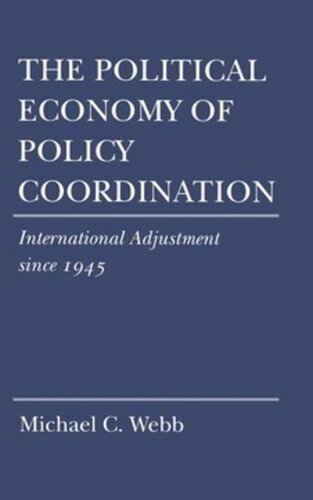

Most ebook files are in PDF format, so you can easily read them using various software such as Foxit Reader or directly on the Google Chrome browser.
Some ebook files are released by publishers in other formats such as .awz, .mobi, .epub, .fb2, etc. You may need to install specific software to read these formats on mobile/PC, such as Calibre.
Please read the tutorial at this link: https://ebookbell.com/faq
We offer FREE conversion to the popular formats you request; however, this may take some time. Therefore, right after payment, please email us, and we will try to provide the service as quickly as possible.
For some exceptional file formats or broken links (if any), please refrain from opening any disputes. Instead, email us first, and we will try to assist within a maximum of 6 hours.
EbookBell Team

4.0
6 reviewsMichael C. Webb explores a central question about postwar economic history: how has the growth of international markets affected the coordination of economic policy among nations? His analysis overturns the popular assumption that policy coordination has eroded as American hegemony has receded. Instead, he argues that the growing mobility of capital forced governments to abandon the strategies they had used in the 1950s and 60s to insulate monetary and fiscal policies from international influences, and to move toward more direct coordination of central economic strategies.
Webb shows that since 1945 there has been a crucial shift in the pattern of international collaboration. He focuses on three types of adjustment policy: trade and capital controls, balance-of-payment lending and intervention in foreign-exchange markets, and monetary and fiscal policies. Noting that the first two types are no longer effective, he demonstrates that governments now rely more on monetary and fiscal policy coordination to regulate the global economy.
As the expansion of international finance created greater turbulence in the global economy in the 1980s, the liberal system of international trade threatened to collapse. Webb examines in particular how the United States, Japan, and Germany took unprecedented steps to coordinate monetary and fiscal policies in the late 1980s and early 1990s, although domestic political obstacles—not any decline in U.S. power—limited the impact of this policy coordination. He concludes by assessing the effectiveness of these attempts to reconcile the goal of a stronger liberal system of economic exchange with the desire to maintain national autonomy.